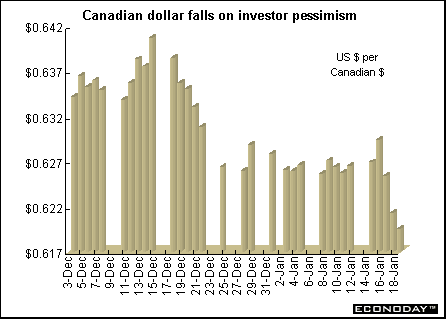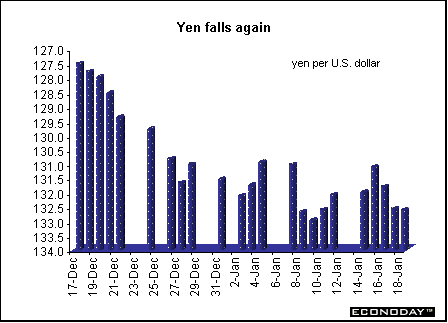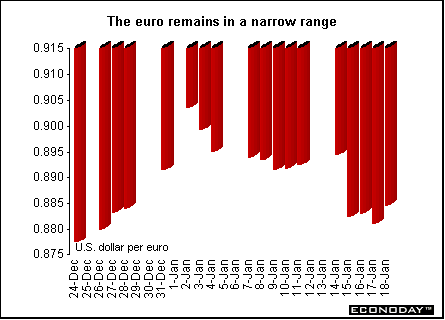
Currencies
The Canadian dollar fell to another lifetime low last week because foreign exchange traders were concerned that the Bank of Canada's 25 basis point interest rate cut Tuesday would not be enough to revive economic growth in the months ahead. They think the Canadian economy is going to lag any U.S. recovery. The Canadian dollar fell 5.9 percent last year and 3.5 percent in 2000 as the U.S. slowdown caused a slump in demand for Canadian goods and the currency to buy them. The fading popularity of Canadian financial assets also depressed the currency. Analysts, who had grown accustomed to a gentle depreciation in the Canadian dollar, were surprised by the speed of Thursday's fall. It used to be that investors would buy Canadian bonds for higher yields and Canadian equities as a cheap way into the U.S. market, but now government bonds offer only a small premium over the U.S. and Canada's equities have lost their appeal.

The yen continued to edge lower as Japanese Prime Minister Junichiro Koizumi toured South East Asia. He had two goals - to promote Japan's economic reform plans and forge new alliances. However, more attention was given to currency comments made by Koizumi and his Asian counterparts than anything else from the meetings. Koizumi said that his government was not intentionally driving the yen lower and that foreign exchange rates are determined by the market. Japanese Finance Minister Masajuro Shiokawa said the yen's recent fall had been a bit fast. This renewed caution over the yen's decline by the Ministry of Finance coincided with Koizumi's tour of the region, where Japan's policy of tolerating a weaker yen is a politically sensitive issue.

The euro continued its slide into mid-January, wiping out virtually all of its December gains in the run up to the hard currency introduction. While the conversion process continues to go smoothly, it hasn't helped the currency in international markets.

The U.S. dollar's reputation as the strongman of foreign exchange is well deserved. Over the past year it has rolled with punches that would have floored any normal currency. Perhaps it should come as little surprise that the dollar hasn't even flinched at the deepening troubles for retail giant Kmart. The dollar was similarly unmoved by Enron's collapse. Such serious problems in Europe or Japan would certainly take a toll on the euro or yen.


Introduction • Global Stock Market Indexes • Recap of Global Markets • Currencies • Indicator Scoreboard

The Bottom Line • Looking Ahead
|